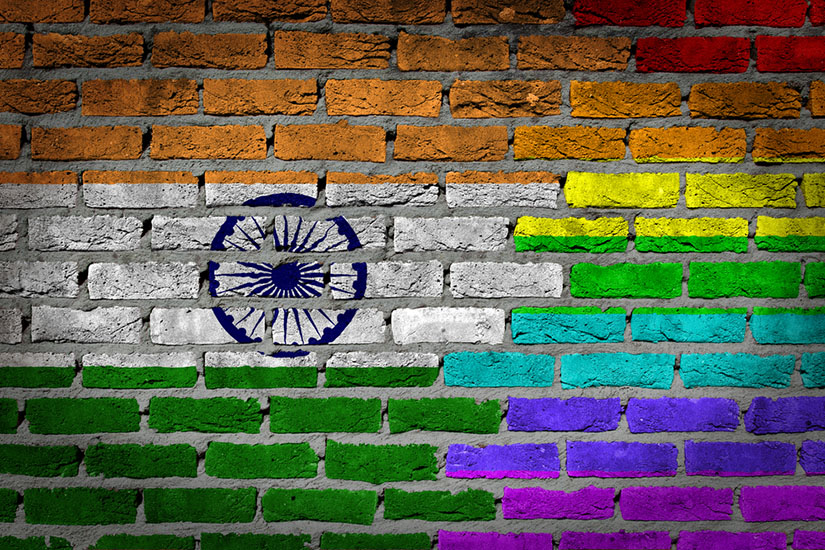A recent commentary, published in the Indian Journal of Medical Ethics, critiques how the mental health systems in India resist the depathologization of LGBTQIA+ identities despite the Supreme Court of India having instructed mental health professionals to do so in 2018. None of the government-run mental health institutions has taken an initiative in promoting LGBTQIA+ rights or fostering an LGBTQIA-inclusive environment.
The author, Sudarshan R. Kottai at the Jindal School of Psychology & Counseling, identifies the problematic nature of mental health systems in India:
“Mainstream mental health professionals frame suicide (of marginalized individuals) as stemming from psychological disorders situated within the person. Such linear, simplistic, biomedical narratives propose psychopharmaceuticals and individualized therapies as solutions. These psychocentric categorisations overstate individual causal factors and understate structural casual factors, resulting in medicalization of social suffering.”
 First, the commentary pointed out the danger of curative violence toward LGBTQIA+ individuals in India. Curative violence is a concept proposed by Eunjung Kim, an assistant professor of Women’s and Gender Studies and Disability Studies at Syracuse University. She questions the idea of cures as a universal good and recognizes the violent effects from both nonmedical and medical cures. As many mental health professionals in India still deem homosexuality as a disorder, LGBTQIA+ individuals in India are facing practices like conversion therapy, electric shock therapy, and hormone therapy which aim to change their sexualities.
First, the commentary pointed out the danger of curative violence toward LGBTQIA+ individuals in India. Curative violence is a concept proposed by Eunjung Kim, an assistant professor of Women’s and Gender Studies and Disability Studies at Syracuse University. She questions the idea of cures as a universal good and recognizes the violent effects from both nonmedical and medical cures. As many mental health professionals in India still deem homosexuality as a disorder, LGBTQIA+ individuals in India are facing practices like conversion therapy, electric shock therapy, and hormone therapy which aim to change their sexualities.
Although the Indian Psychiatric Society issued its first statement in 2018 asking its members to stop considering homosexuality as an illness, it did not engage in any proactive anti-discriminatory action.
“The mainstream Indian mental health community has been silent about the need to bring an LGBTQIA+ anti-discrimination law and a ban on conversion therapy, signifying prioritisation of ameliorative change that blames the victim for systemically induced suffering,” the author writes.
Kottai called out the heteronormativity within mental health systems in India as the critical factor forcing queer individuals to end their lives:
“It is the popular discourse of heteronormativity that causes anxiety and confusion among parents regarding their children’s diverse sexual orientations, leading them to consult mental health professionals who find fault with LGBTQIA+ people’s brains and minds, exhorting them to covert and ‘adjust’ to oppressive systems that breed distress.”
The commentary also critiqued how biocommunicability casts a barrier to the development of multiple perspectives about LGBTQIA+ health in India. Biocommunicability is a concept proposed by Charles Briggs and Daniel Hallin, who believe public communication regarding health designates different assumptions about what health knowledge is and portrays versions of healthy citizenship. The commentary uncovered that the government-run, mainstream mental health institutions fail to promote rights-based, user-centric, affirmative mental hallah-relation information to the public. Thus, the awareness of LGBTQIA+ health in India remains on viewing professional mental healthcare as the only determinant of mental health communication.
“Structural violence, legal violence, and other power imbalances escape the gaze of mental health practice, reinforcing the colonial attitudes of suppression, profit-making, and victim blaming that reconfigures LGBTQIA+ rights issues as individual mental health problems in connivance with the quadraphonic state architecture,” the author added. “There is a lack of recognition of the fact that a person is constituted not only by the physical body but also by the social and political bodies.”
Hence, the commentary emphasized the need for public policy to address issues around LGBTQIA+ health, education, employment, housing, poverty reduction, food security, and access to justice. Those policies could impact social determinants of mental distress as well as reduce the stigmatization of sexual minorities. By switching the focus of intervention from the individual level to the socio-political level, more LGBTQIA+ individuals could end their suffering from the dominance of biomedical technocratic psychiatry.
Lastly, the commentary called for transformative change in mental health systems with more rights-based and value-based perspectives in India. The author reminded the reader that the Western medical knowledge framework, which usually is cisgendered and heteronormative, continues to influence academia and psychiatric practices regarding LGBTQIA+ individuals. Raising critical awareness and education regarding LGBTQIA+ issues among practitioners and medical students is critical for the thriving future of LGBTQIA+ individuals’ health.
The author concludes:
“Until and unless the mental health systems explicitly shift their hegemonic biomedical narratives and align with the human rights discourse on LGBTQIA+ issues, advocating policy/social change, they will continue to address systemic problems at an individual level without appreciating how persons respond to contexts and how they can exercise power to change those contexts.”
“It is high time that acontextual, apolitical, and ahistorical psychiatric knowledge production and practice is resisted in defining every state of mind and social problem as a psychiatric problem, and social and political action is recognized as paramount in curing sickness.”
****
Kottai, S. R. (2022). LGBTQIA+ rights, mental health systems, and curative violence in India. Indian Journal of Medical Ethics, 7(2), 127-133. (Full text)












